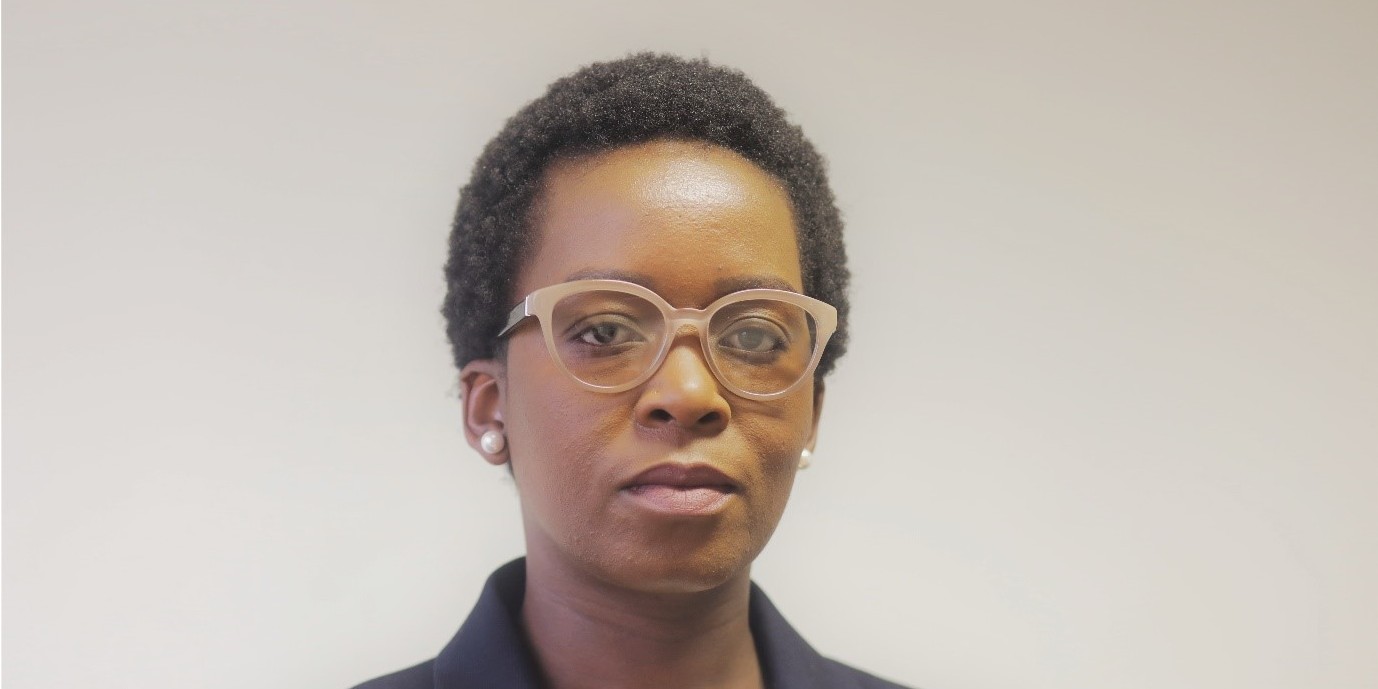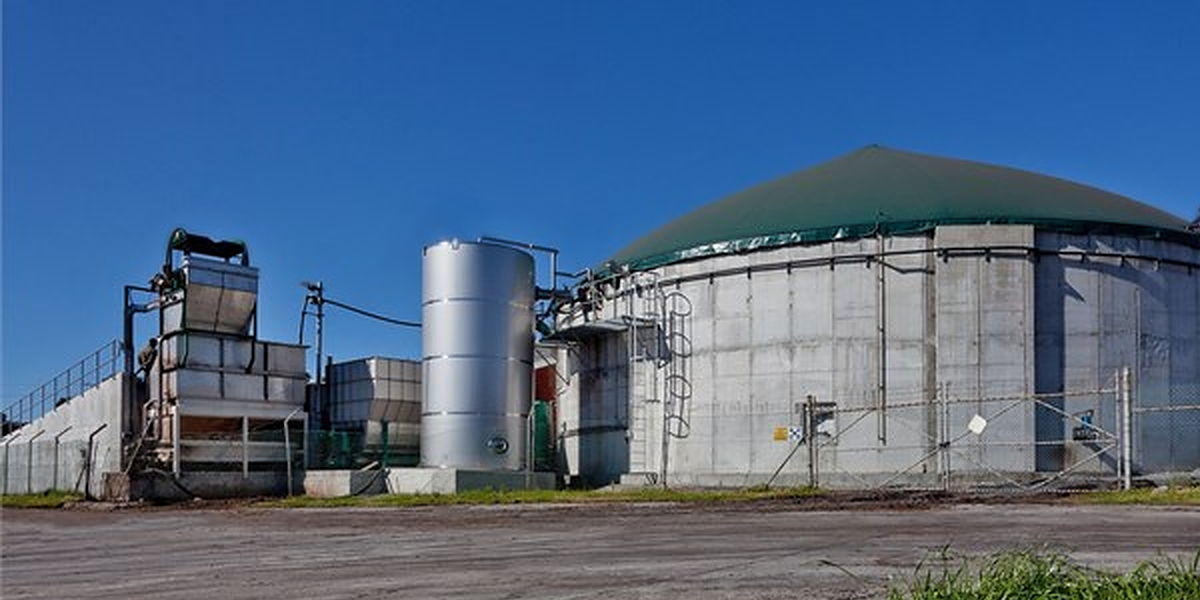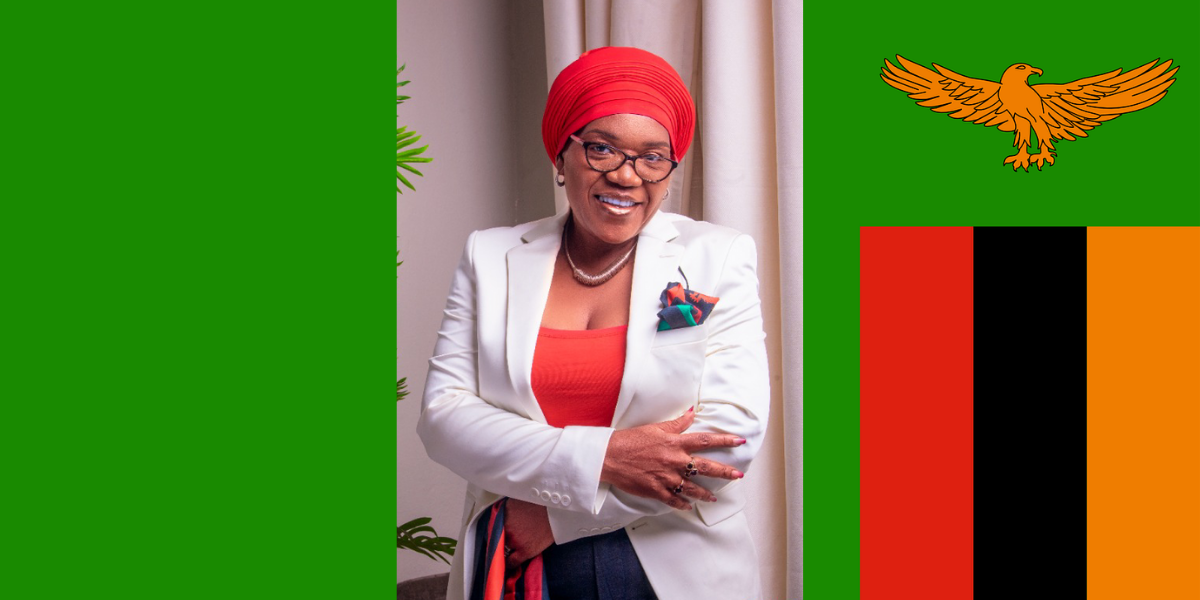
Dr Patience Ifeyinwa Opata is a Senior Lecturer in Agribusiness and Marketing at University of Nigeria, Nsukka (UNN). She is currently teaching courses in agricultural business and marketing at graduates and undergraduates levels at UNN. Her research interest includes transformation of agriculture from subsistence to market oriented production through access to input and output market institutions and gender in agriculture.
Dr Akan Odon recently interviewed Patience to find out a little about her experiences as a woman working in research in Africa.
Please briefly share with us your name and professional history
My name is Dr Patience Ifeyinwa Opata, currently a Senior Lecturer in Agribusiness and marketing at University of Nigeria, Nsukka. My professional history date back to my Bachelor of Agriculture (B. Agric) degree from University of Nigeria, Nsukka and a joint Masters of Science in Farm management and production economics, Agricultural finance and Project analysis and Agricultural business and marketing at University of Nigeria, Nsukka which were obtained between 1995 and 2008. During these periods (1995 to 2008), I have won research grants and fellowships from different bodies including International foundation for Science (IFS), World Bank Robert S. McNamara Fellowship, The African Women in Agricultural Research and Development; Third World Academy of Science, Partnership for Economy fellowship and travel grant to participate in Global food security. Thus, I had extensive experience of interdisciplinary and collaborative work and have led international team examining: staple food enterprises amongst rural households; food security challenges in Nigeria; indigenous post harvest technologies in developing countries; soybean processing in southeast Nigeria. I also had a PhD in agribusiness and marketing from University of Nigeria, Nsukka which was obtained in between 2008 and 2012. I had 12 years teaching and research experience and have done extensive research in agricultural commercialisation, such as the effect land, labour, credit, other input and output market institutions in transformation of agriculture from subsistence to market oriented production and gender in agricultural research. I led over 25 research teams of both students and lecturers as a Principal Investigator examining and publishing the output of the work in many impact factor journals.
Give us a sense of your current work and affiliations
As a Senior Lecturer of agribusiness and marketing in the Department of Agricultural Economics, University of Nigeria, Nsukka, I am currently teaching undergraduate and post graduate level students in agribusiness and marketing. I am also leading many research teams of both students and lecturers examining and publishing the output of the work in many impact factor journals: examples are ‘Drivers of farmer market participation in southeast Nigeria; Revenue drivers of women labour in crop production in southeast Nigeria; Determinants for adoption of technology and the choice of marketing channels for rice smallholder farmers in southeast Nigeria; Evaluation of agribusiness performance in Nigeria; Efficiency of irrigation and rain-fed rice producers in Fadama agriculture in Nigeria. I am an expert in generating gender disaggregated data in a way that reflect gender differences in terms of women/men operations in the activities in the value chains of various staple crop enterprises. From these data, I examined and published articles on: “Impact of women’s share of income on selected value chains expenditures in rural southeast Nigeria; and Impact of women’s share of income on household expenditure in southeast Nigeria.
How did you get to hear about and engage with RECIRCULATE as a project?
I learnt of RECIRCULATE from Dr Nicholas Ozor, Executive Director, African Technology Policy Studies, Kenya. I engaged with RECIRCULATE project at Lancaster University through participation in a special workshop in innovation and entrepreneurship at Nairobi, Kenya and in a series of career development webinars that is directly related to my capacity building in teaching and supervising graduates and undergraduates level students at my institution, and as a researcher in Agribusiness and Marketing and gender in agricultural at the Department of Agricultural Economics, University of Nigeria, Nsukka.
What has been your experience engaging with the RECIRCULATE project so far?
I had a great experience meeting diverse expertise (university lecturers, policy makers, industry, private sectors, etc) at the innovation and entrepreneurship workshop, organized by the RECIRCULATE project at Nairobi Kenya. I was extremely excited to be trained on the power of trans-disciplinary approach to research and the role of working with and for the communities, example, linking academia to industry and to policy makers to benefit from the outcome of the research to enable transformational impact in the society. I am highly convinced that community engagements and partnerships with the researchers and policy makers is the key to transformational and not just publication of papers.
What do you consider are the two biggest challenges that women in research faces in Africa?
Gender dynamics and power relationships in decision-making at the household, local, regional and national level is one of the biggest challenges that women researchers face in Africa. At household level men abandon the child care, household services and preparation of food for women, which place constraints on time allocation to research. At local, regional and national levels, the numbers of women in leadership positions were less than 10 percent of the total population, and thus women do not have an equitable voice with the men in setting the priorities for research and policies. Knowledge generation in gender dynamics which is vital in achieving most of the developmental challenges is not yet given adequate attention.
What do you think should be done to address these challenges women in research face?
There is need for renewed worldwide interest in sub-Saharan Africa (SSA) concerning power dynamics within the household, local, regional and national levels and how these relate to achieving Sustainable Development Goal (SDG) 5 (gender equality). This will expose the empirical evidence of research and programme implication of targeting gender that account for more proportion of the world poor, produce more proportion of 60 to 80% of the world food and owned less productive resources such as education, livestock, land, labour and financial services and yet share greater percentage of what they earn with children and other members of the households. The government at regional, national and international levels should support women’s education through fellowships and grants at graduate, masters, doctoral and post doctoral degrees. Each of the fellowship tailored to the specific needs of women at those levels. These are required for capacity gaps between men and women to be filled so that women’s voice is equitable with those of men and so that they can be involved in setting the priorities for research and policies. The result of this will be that women in research will also be in leadership position to serve other rural women especially those women in agriculture.
How have you been able to progress in your work despite all the challenges this year?
Working from home is more critical than ever and this has enabled me to progress in my work this year despite all the challenges as a married woman. In addition to recommendation on high quality water supply, sanitation, quarantine, mask and social distancing, the World Health Organisation and Nigerian Center for Disease Control (NCDC) recommends staying at home if possible in reducing the spread of the COVID-19. Thus I stayed at home this year more than any other year. I have been at home after attending RECIRCULATE Innovation and Entrepreneurship workshop in Nairobi, Kenya between February 21 and March 1st this year. These enabled me to respond to various referee reports from several Scopus and Thompson Reuters impact factor Journals on the articles that I am the lead and corresponding authors. I responded to manuscripts on transformation of African agriculture from subsistence to commercial agriculture and on gender in agriculture, for example those on commercialisation are: Drivers of farmer market participation in southeast Nigeria which was published in Journal of Agriculture and Rural Development in the Tropics and Subtropics; Evaluation of agribusiness performance which was published in African Journal of Management and Determinants for the Adoption of Technology and the Choice of Marketing Channel for Rice smallholder farmers in southeast Nigeria which was published in The Journal of Animal and Plant sciences. Other work in gender and agriculture that was published this year were: Impact of women’s share of income on household expenditure in southeast Nigeria which was published in African Journal of Agriculture and Resource Economics and the Impact of women’s share of income on selected value chains expenditures in rural southeast Nigeria was published in Journal of Tropical Agriculture. Thus I overcome the challenges this year and led and published 5 journal articles in impact factor journals.
All articles in The FLOW are published under a Creative Commons — Attribution/No derivatives license, for details please read the RECIRCULATE re-publishing guidelines.




